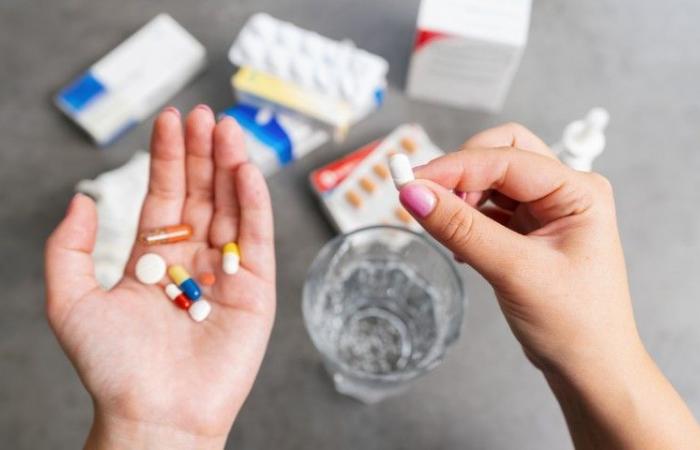srcset=”https://cdn2.tribunaonline.com.br/img/inline/170000/372×236/Maioria-dos-brasileiros-toma-remedio-sem-consulta-0017855600202404281124/ScaleUpProportional-1.webp?fallback=%2Fimg% 2Finline%2F170000%2FMaioma-dos-brasileiros-take-remedio-sem-consulta-0017855600202404281124.jpg%3Fxid%3D792282&xid=792282 600w,
Nine out of 10 Brazilians take medicine without a prescription in Brazil. This is what a survey on the pharmaceutical market carried out by the Institute of Science, Technology and Quality (ICTQ) points out. Despite being an extremely common habit among Brazilians, experts warn about the health risks of self-medication.
The doctor, pediatrician and toxicologist who is a technical reference for exogenous poisonings at the State Department of Health of Espírito Santo (Sesa), Rinara Machado, highlights that one of the dangers of self-medication is that the patient thinks they are treating the disease when, in fact, it is delaying it. correct diagnosis and treatment.
“Another problem that happens quite frequently is the patient trying to search for a false diagnosis and false treatment on the internet, which are not suitable for what they really have. That’s where self-medication happens.”
In addition to the risk of drug poisoning, when used without a medical prescription, the patient may also face the side effects of the drugs.
“The patient, when self-medicating, may use a certain medication in an incorrect dose, and may, depending on the time he uses this medication, have liver, kidney, hematological or neurological changes, because the medication has its adverse effects”, said Rinara Machado.
Virgínia Altoé Sessa, clinical oncologist, highlights that self-medication can mask symptoms and hinder a possible diagnosis.
“In general, patients who have any symptoms always try to control them before seeking medical attention. If the symptom is persistent and if the patient continues to use self-medication, the diagnosis may even emerge, but late, which hinders and reduces the chances of a cure.”
Another danger is self-medication, even after diagnosis and correct prescription.
“It is common for patients with the same diagnosis to share information about medications. The first thing I always answer when someone asks me about self-medication is, ‘the diseases are different, therefore, the treatments are different’”, concludes Virgínia Altoé Sessa.
Find out more | Public health problem
>> Search
– Nine out of ten people in Brazil take medicine without a prescription.
– The research was carried out by the Institute of Sciences, Technology and Quality (ICTQ).
– Survey reveals that 86% of Brazilians use medications without consulting a doctor.
– Of these, the majority are women, economically active people, who have higher education and greater purchasing power.
– In addition, 68% of respondents said they use the internet to seek help on health issues.
– In 2022, the investigation interviewed 2,099 people, in 151 municipalities. The maximum margin of error for the total sample is 2 percentage points, plus or minus, at the 95% confidence level.
>> Self-medication
– Self-medication is so serious that it has become a public health problem for the World Health Organization (WHO).
>> Symptoms
– Self-medication occurs mainly to treat symptoms such as:
– 65% headache
– 50% flu and cold
– 38% fever
– 37% muscle pain
– 6% anxiety
– 6% insomnia
– 5% stress
– 3% weight loss.
>> History
– In 2014, ICTQ identified that 76% of the population declared that they self-medicated without any reservations.
– In 2016, this index varied to 72%; in 2018 it grew to 79%, and in 2020 it rose to 81%.
>> Risks
– Intoxication
– Allergic reactions
– Drug resistance
– Dependency.
Source: Institute of Science, Technology and Quality (ICTQ).
RELATED TOPICS:
HEALTH
Half of people aged 30 already have high blood pressure, warns WHO
BRAZIL
Rule restricting legal abortion comes back into force after injunction is overturned
HEALTH
Vitória has more than 1,600 new vaccination places






